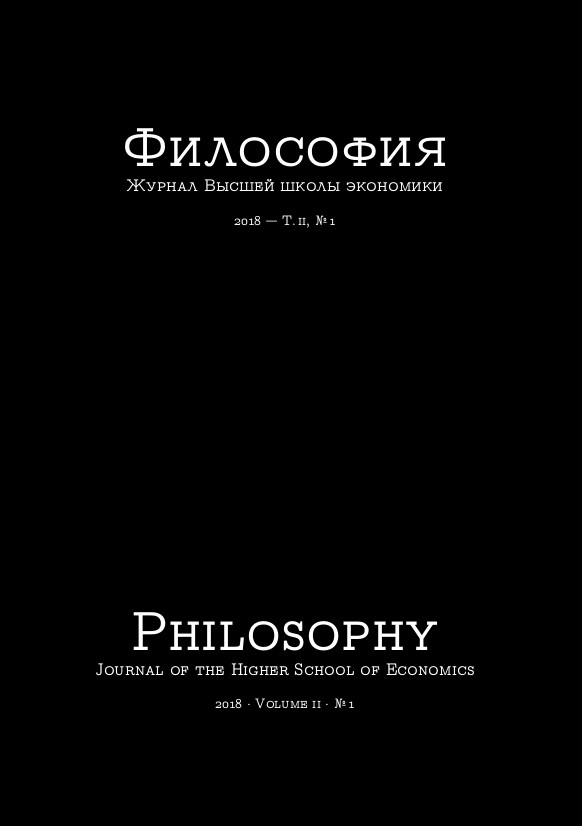Philosophy and the Sacred in Antiquity
Abstract
The difference between philosophical and religious discourses is not reducible to the difference between the "rational" and the "irrational". Philosophers (at least, ancient philosophers) reflect on things divine either arguing with traditional views on what is fitting for god, or re-interpreting them by means of complex hermeneutic procedures. On the other hand, religion ( in this issue, we shall deal primarily with early Christianity) naturally embraces philosophy not only as a specific set of theoretical propositions or methods, but also as a way of life oriented towards the true and aimed at the assimilation with God. That is why the problem raised in this issue can only be approach in an interdisciplinary way: both the notion of the "divine" and the notion of the "philosophical" determine, to a greater or lesser extent, scientific, poetic, theological discourses.
The article of Irina Makarova deals with the well-known Aristotelian analogy between nous poietikos (active intellect) and light. Although Alexander of Aphrodisias identified active intellect with the divine intellect from the Metaphysics XII, this identification was questioned already in antiquity, for instance, by Themistius. Makarova's sharp analysis of the light-analogy brings her to the conclusion that active intellect in Aristotle has an "illuminative" function, as was noted by such Aristotle's commentators as Thomas Aquinas and Francisco Suárez.
Irina Prolygina explores the relationship between the rational and the sacred in the ancient medicine, namely, in the Galenic Corpus. Galen's method of medicine, based on empirical observation and logical reasoning, being opposed to various magical practices, was nevertheless compatible with the so called "temple medicine" and with the cult of Asclepius. According to Galen, "piety" and rational medicine are not mutually exclusive, insofar as physicians do not expect from Asclepius (as the "disciples of Moses" do from their God) to break the natural order of things.
Dmitry Biryukov's paper is dedicated to the philosophical notion of «participation» and its reception in the theology of Origen. Origen's teaching on participation goes back to Platonism, but it is also influenced by the Second Epistle of Peter. The author singles out two «discourses of participation» in Origen: natural participation and individual participation. It is the latter notion which is crucial for understanding Origen's idea of the «union with God».
Tatyana Aleksandrova provides a rich account of the Homeric Cento of the 1st redaction, which has been attributed to Eudocia the Empress, wife of Theodosius II. On the narrative level, the Cento represents a paraphrase of Gospels stories about Jesus. At the same time, on the «intertextual level», the text reworks certain "themes from the Odyssey" in a philosophical or even "mystagogical" way. In this respect, the author of the Cento must have been influenced by Porphyry ("On the Cave of Nymphs") and other Neoplatonists, who believed that Homer was initiated into the mysteries of the Universe.
In this volume, we also present two new Russian translations from the Church Fathers. St. Augustine's Homily In Psalm 136 was translated by Polina Semenova (editor: Sergej Stepantsov); St. Basil's Homily On Anger was translated by Anna Grünert (editor: Olga Alieva).
As usual, we present several book-reviews on various topics.
Downloads






